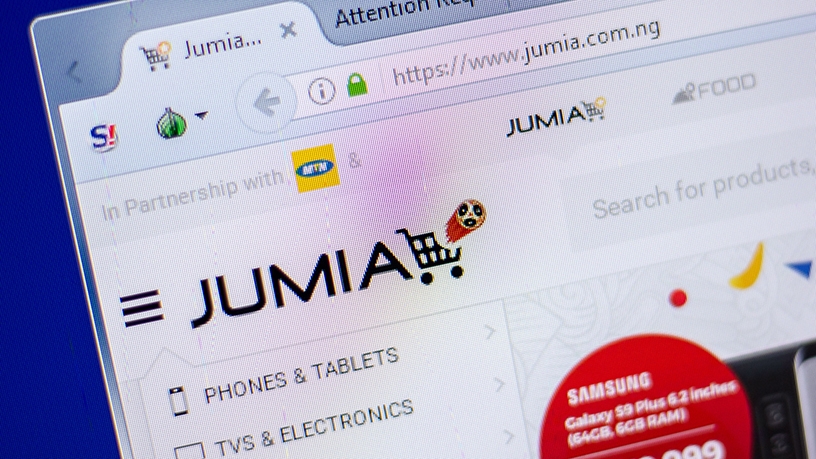 Jumia is poised to become the first African start-up to be listed on the New York Stock Exchange.
Jumia is poised to become the first African start-up to be listed on the New York Stock Exchange.
MTN-backed e-commerce company Jumia is set to become the first African start-up to list on the New York Stock Exchange (NYSE).
This as the Nigeria-based start-up filed for an initial public offering (IPO) on the NYSE yesterday, as reflected in documents from the US Securities and Exchange Commission.
According to reports, the firm can list on the NYSE as early as next month.
Banks leading the IPO include Morgan Stanley, Citigroup, Berenberg and RBC Capital Markets.
MTN, Jumia's largest shareholder, recently said it plans to generate more than $15 billion over the next three years through asset sales. Jumia Group secured over EUR300 million (R4.9 billion) of funding from MTN in 2016.
The first MTN asset sale move was last week's announcement that it will dispose of its associate in Botswana, Mascom, for $300 million (R4.3 billion).
In a short statement sent to ITWeb following Jumia's IPO filing, the mobile operator says: "MTN is aware Jumia has publicly filed its registration statement and is working on the IPO which is focused on raising capital for growth.
"As we discussed at our results on 7 March, MTN has completed a review of the markets in which we operate to ensure appropriate strategic and operational fit. We have also reviewed our e-commerce and towerco portfolios, which include Jumia, and determined that these are not strategic for us over the long-term."
Massive valuation
Jumia was launched in Lagos in 2012 by Jeremy Hodara and Sacha Poignonnec, ex-McKinsey consultants, along with Tunde Kehinde and Raphael Kofi Afaedor.
It then expanded to five other countries: Egypt, Morocco, Ivory Coast, Kenya and SA. In 2014, the company launched offices in Uganda, Tanzania, Ghana, Cameroon, Algeria and Tunisia, and it was present in 14 African countries in 2018.
The company, which was given a $1 billion valuation in 2016, had four million active consumers at the end of 2018.
Jumia became the first African start-up unicorn in 2016, achieving a $1 billion valuation after a $326 million funding round that included Goldman Sachs, AXA and MTN.
In its filing, Jumia says its mission is to "improve the quality of everyday life in Africa by leveraging technology to deliver innovative, convenient and affordable online services to consumers, while helping businesses grow as they use our platform to reach and serve consumers".
The Jumia platform consists of its marketplace, which connects sellers with consumers; logistics service, which enables the shipment and delivery of packages from sellers to consumers; and its payment service, which facilitates transactions among participants active on its platform in selected markets.
The company operates in six regions in Africa, which consist of 14 countries that together accounted for 72% of Africa's GDP of EUR2 trillion, and 74% of African consumer expenditure of EUR1.4 trillion in 2018, according to the IMF and Euromonitor, respectively.
"Though still nascent, we believe that e-commerce in Africa is well positioned to grow. In 2018, less than 1% of retail sales for countries measured in our footprint in Africa were conducted online, compared to nearly 24% in China, according to Euromonitor," says Jumia.
NYSE appetite
Commenting on the Jumia IPO, Byron Lotter, portfolio manager at Vestact Asset Management, says: "The IPO could value the company at a solid $1.6 billion. That puts it in line with Dis-Chem, Resilient and Tsogo Sun. In case you forgot, Jumia is an online retailer with over four million users, predominantly in Nigeria."
According to Lotter, the NYSE has the liquidity and appetite for these types of businesses. "After many successful tech IPOs in the last 10 years, US investors are not scared to put money into a company that made a loss of R2.7 billion last year.
Jumia reported a loss of EUR170.4 million in 2018.
"As you may have noticed, the JSE has been very unforgiving and sceptical of late. Understandably so. As the gateway to Africa, I'd say this is a missed opportunity for the JSE."
Lotter points out that at the end of December, MTN owned 31.28% of Jumia, which values its stake at R7.15 billion.
"That is juicy. MTN have already indicated they plan on selling the stake to pay off debts. Considering MTN's already hefty exposure to Nigeria, as well as Nigeria's propensity to turn ugly on its private sector, I'd say cashing out is a good idea."




